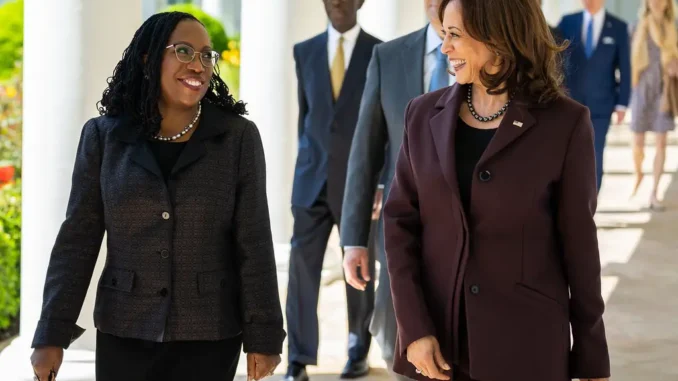
A recent NAACP poll has revealed that Vice President Kamala Harris may indeed face significant challenges among black voters, which is traditionally a cornerstone of the Democratic Party’s electoral strategy. As the November elections draw nearer, the once-reliable support from the black community appears shaky, with rising disillusionment posing a potential hazard for Harris and her campaign. For a party that has long taken these voters for granted, the ramifications of this shift could be profound.
Despite the poll indicating that 63% of black voters still plan to support Harris, a worrisome 26% of black men under 50 expressed a preference for Donald Trump. This demographic’s shift toward the Republican candidate is particularly alarming, as it reveals a growing divide and dissatisfaction with the Democratic message. Meanwhile, older black voters still show robust support for Harris, with 77% of those over 50 backing her—though this seems less a testament to her campaign’s effectiveness and more a reflection of long-standing party loyalty.
The issues most pressing to black voters—economy, crime, and public safety—remain unaddressed by the Democratic agenda, which increasingly resembles a perpetual campaign of empty promises rather than substantive action. Economic concerns, notably rising costs of living, weigh heavily on this demographic, with a staggering 82% of black men under 50 identifying these matters as paramount. It’s clear that if Harris wishes to secure their votes, she needs more than just the obligatory outreach; she needs to affect real change that resonates with their daily struggles.
Harris’s reliance on “softball” interviews and scripted statements displays a lack of genuine engagement with the issues that matter most. Her recent interaction with the National Association for Black Journalists seemed to serve more as a shield against hard questions than as a genuine effort to connect. The idea that Harris believes she needs to “earn” the vote rather than take it for granted is somewhat alarming, especially when paired with the data indicating a significant drop in support among younger black voters. At just 56%, her backing among this group is significantly lower than among older demographics and showcases an urgent need for change in strategy.
As polling indicates increasingly tight races across crucial swing states, the implications of losing ground with black voters become critical. Historically, the Democratic Party has failed to deliver on their promises, leaving many feeling abandoned and unrepresented. This situation presents a golden opportunity for Donald Trump and the Republican Party to reclaim these voters, who have grown tired of their voices being muted in a party that supposedly champions their rights but often neglects their needs.
In summary, the NAACP poll signals a troubling trend for the Harris campaign. The Democratic Party’s long-held belief that black voters will automatically rally behind them is being challenged, underscoring the necessity for authentic engagement and concrete solutions. For Republican candidates willing to listen and adapt their strategies to meet the needs of this community, a remarkable opportunity exists to expand their reach and to make inroads that have previously been thought unattainable. Only time will tell if these shifts usher in a new political landscape within the black community.
Leave a Reply